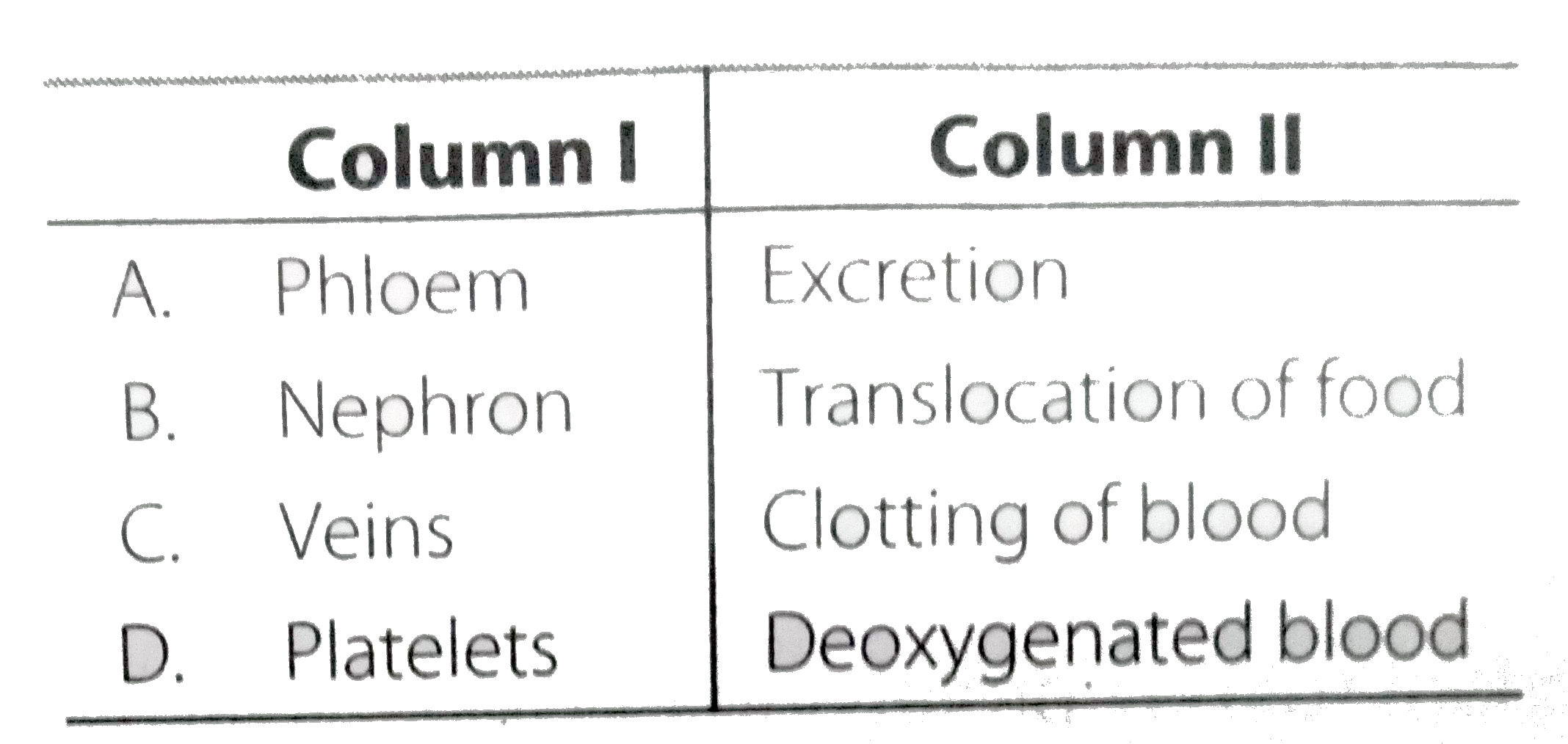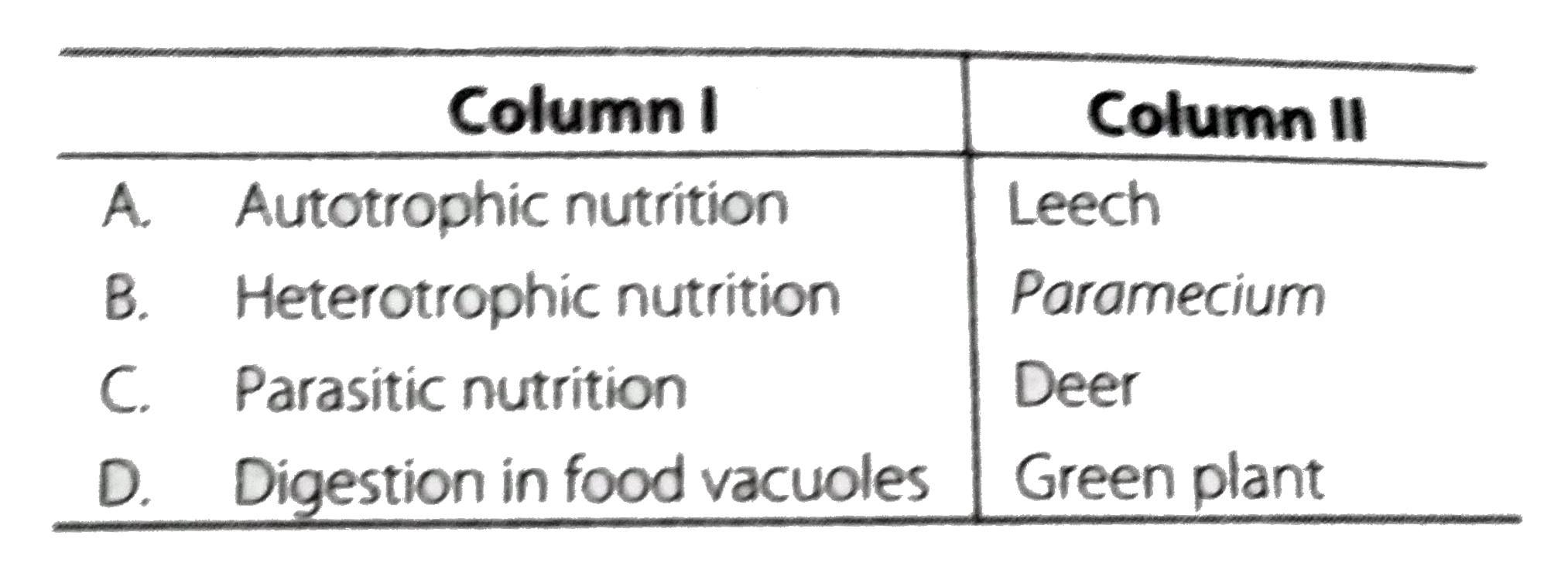Complete Solutions to Short Answer Type Questions of chapter LIFE PROCESSES of Class 10 book with complete answers and questions
| Class 10 | BIOLOGY |
| Chapter | LIFE PROCESSES |
| NCERT EXEMPLAR | Short Answer Type Questions |
| Number Of Questions | 36 |
| Academic Year | 2023-24 |
Name the following:
(a) The process in plants which converts light energy into chemical energy.
(b) Organisms that cannot prepare their own food.
(c) Organisms that can prepare their own food
(d) The cell organelle where photosynthesis occurs.
(e) The cells which surround a stomatal pore
(f) An enzyme secreted by gastric glands in stomach Which acts on proteins.05:17View SolutionAll plants give out oxygen during day carbon dioxide during night . Do you agree with this statement ? Give reason
03:02View SolutionHow do the guard cells regulate opening and closing of stomatal pores ?
02:17View SolutionTwo green plants are kept separately in oxygen free containers, one in the dark and the other in continuous light . Which one will live longer ?
02:42View SolutionIf a plant is releasing carbon dioxide and taking in oxygen during the day, does it mean that there is no photosynthesis occurring ? Justify your answer.
02:54View SolutionWhy do fishes die when taken out of water ?
02:14View SolutionDifferentiate between an autotroph and a heterotroph.
02:24View SolutionIs 'nutrition a necessity for an organism ? Discuss.
02:16View SolutionWhat would happen if green plants disappear from earth ?
02:44View SolutionLeaves of a healthy potted plant were coated with vaseline . Will this plant remain healthy for long ? Give reasons for your answer.
03:00View SolutionHow does aerobic respiration differ from anaerobic respiration ?
03:49View SolutionMatch the words of column I with that of column II.
 02:49View Solution
02:49View SolutionDifferentiate between an artery and a vein.
03:30View SolutionWhat are the adaptations of leaf for photosynthesis ?
03:32View Solution(a) Why is small intestine in herbivores longer than in carnivores ?
(b) What causes movement of food inside the alimentary canal?04:05View SolutionWhat will happen if mucus is not secreted by the gastric glands ?
02:55View SolutionWhat is the significance of emulsification of fats ?
03:14View SolutionWhat causes movement of food inside the alimentary canal ?
01:13View SolutionWhy does absorption of digested food occur mainly in the small intestine ?
02:06View SolutionMatch the following columns.
 04:14View Solution
04:14View SolutionWhy is the rate of breathing in aquatic organisms much faster than in terrestrial organisms ?
02:24View SolutionWhy is the advantage of having four chambered heart ?
02:49View SolutionWhat is the major events during photosynthesis.
02:41View SolutionMention the major events during photosynthesis.
02:25View SolutionIn each of the following situations what happens to the rate of photosynthesis ?
(a) Cloudy days , No rainfall in the area
( c) Good manuring in the area , (d) Stomata get blocked due to dust03:27View SolutionName the energy currency in the living organisms .When and where is it produced ?
02:55View SolutionWhat is common for Cuscuta,ticks and leeches ?
01:59View SolutionExplain the role of mouth in digestion of food.
02:22View SolutionWhat are the functions of gastric glands present in the wall of the stomach?
03:27View SolutionMatch the terms in column I with those in column II .
`{:("Column I","Column II",),(A."Trypsin","Pancreas",),(B."Amylase","Liver",),(C."Bile","Gastric glands",),(D."Pepsin","Saliva",):}`02:52View SolutionName the correct substrates for the following enzymes
(a) Trypsin , (b) Amylase
( c ) Pepsin , (d) Lipase03:10View SolutionWhy do veins have thin walls as compared to arteries ?
01:55View SolutionWhat will happen if platelets were absent in the blood ?
01:47View SolutionWhy do animals consume more energy as compared to plants
02:23View SolutionWhy and how does water enter continuously into the root xylem ?
04:06View SolutionWhy is transpiration important for plants ?
02:32View Solution
Short Answer Type Questions questions and complete solutions for chapter LIFE PROCESSES of NCERT BIOLOGY (ENGLISH) of Class 10
